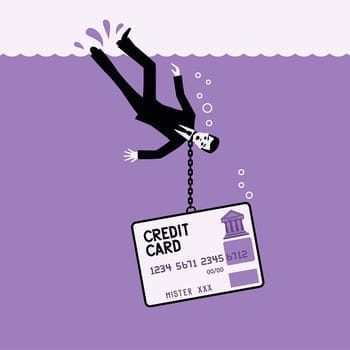Bankruptcy is a measure of last resort when it comes to debt relief. In fact, bankruptcy laws and the courts are designed to specifically protect people who actually need the relief, and not people who don’t actually need it. This is because there is a delicate balance of the property rights of creditors to money they are owed versus the rights of debtors to get out of the prison of insurmountable debt.
The Law Requires Credit Counseling Prior to Bankruptcy
Therefore, in order to qualify for Chapter 7 or Chapter 13 bankruptcy, a debtor must first receive credit counseling. Specifically, Bankruptcy Code Section 109(h) states that except otherwise provided:
“an individual may not be a debtor under this title unless such individual has, during the 180-day period ending on the date of filing of the petition by such individual, received from an approved nonprofit budget and credit counseling agency described in section 111(a) an individual or group briefing (including a briefing conducted by telephone or on the Internet) that outlined the opportunities for available credit counseling and assisted such individual in performing a related budget analysis.”
In other words, an individual has to receive credit counseling in the 180 days prior to filing to bankruptcy in order to qualify for bankruptcy. Don’t worry about what “section 111(a)” says, because the Justice Department has a full listing of these approved credit counseling agencies broken down by state. Many of these agencies offer their counseling over the telephone or online.
The counseling agency will look at your debts, your income, and your expenses. This counseling is designed to determine whether you have any viable means of repaying your outstanding debt, such as a repayment plan. If this is a possibility, then the agency may recommend a repayment plan; however, you are under no legal obligation to actually go with that plan. The requirement is that you receive counseling, not that you follow its recommendations. Once you have received a certificate of completion from the agency, then you must file that certificate with the bankruptcy court within 15 days after filing for bankruptcy.
You Need an Attorney
Filing bankruptcy is a major life decision that must be made with seriousness and in good faith. The attorneys at Levitt & Slafkes, P.C. can help advise you on a debt relief plan that best suits your needs, whether this means working with creditors or filing for bankruptcy relief. We work tirelessly to provide our clients with supportive, thoughtful representation. Contact Levitt & Slafkes, P.C., at (973) 323-2953, or reach us online to schedule a free consultation.
We are proudly designated as a debt relief agency by an Act of Congress. We have proudly assisted consumers in filing for Bankruptcy Relief for over 30 years.



